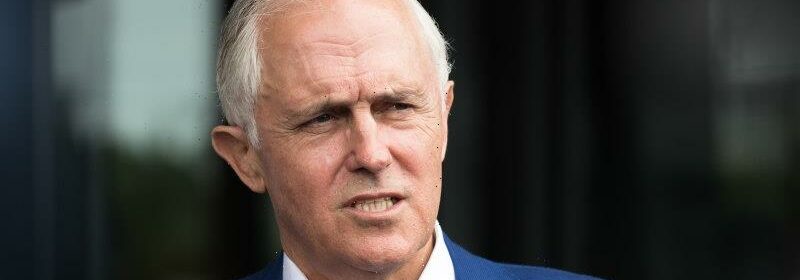Malcolm Turnbull questions whether ‘sick’ British economy can sustain AUKUS

Malcolm Turnbull has joined fellow former prime minister Paul Keating in criticising the AUKUS pact, insisting it would have been better to acquire nuclear-powered submarines under the deal he struck with France rather than the United States and United Kingdom.
Turnbull questioned whether the UK was up to the task of being a long-term partner in the project given its “sick” economy was mired with “fundamental existential problems”.
Former prime minister Malcolm Turnbull questioned the AUKUS deal, saying France would have been a better option.Credit:Alex Ellinghausen
Using more nuanced language than Keating did during a fiery National Press Club appearance on Wednesday, Turnbull said he was pleased to see the submarine plan take a “more coherent form” but that the risks of such a complex and expensive project should not be underestimated.
“We also should not forget that there was a better way, and one that was never seriously examined by our government,” Turnbull said in a speech to the Defence College in Canberra on Wednesday night.
“If we had gone nuclear with France we would have had submarines that were much cheaper, delivered sooner, more suitable in terms of size and crew and with reactors that did not create
the very dangerous proliferation precedent that will be seized upon and exploited by our
adversaries.”
Explaining how such a plan would have worked, Turnbull said Australia could have continued with the planned purchase of diesel-powered Attack-class submarines from France before switching to a nuclear-powered version in the mid-2030s.
These ships, he said, would have been more nimble and cheaper than the Virginia-class submarines the government has opted to acquire from the United States.
They would also have used low enriched uranium in their naval reactors which “does not pose a nuclear proliferation risk in the way the weapons grade uranium used in US and UK naval reactors
does”.
France would have been a better partner than the UK because it has a permanent military presence in the Pacific, he said.
“The United Kingdom, on the other hand, has no permanent military or material territorial
interests in this region from which it withdrew more than sixty years ago,” he said.
“It’s economy is in dire straits and, self-isolated from Europe the world’s largest free trade zone, it faces enormous fiscal challenges.”
Turnbull went further on ABC radio on Thursday morning, saying: “The bottom line is [the UK’s] economy is sick. It’s got fundamental existential problems. And you’ve got to ask yourself whether Britain is going to be able to sustain investment in its navy and its military in the years ahead, given the huge demands that they’ve got elsewhere.”
In his press club appearance, in which he attacked senior members of the Labor Party including Foreign Minister Penny Wong, Keating said France had offered Australia a new deal that would have delivered a new model of nuclear-powered submarine by 2034 and with low-enriched uranium.
The French government have offered the Australian government a new deal on the submarines. And that would be the new French nuclear submarine – the newest one in the world. 5% only enriched uranium – not 95% weapons grade. Delivery firm date, 2034 – fixed prices.
Turnbull continued his longstanding questioning of whether AUKUS would diminish Australia’s sovereignty, saying it was counter-productive for the nation to be perceived as America’s “deputy sheriff” in the Asia-Pacific.
“The AUKUS submarine plan will see many billions of Australian dollars being invested in American and British submarines and submarine related infrastructure,” he said.
“While this will, in time, enhance our naval capabilities it will be seen as making us even more dependent on the United States and now the United Kingdom. Australian sovereignty will be perceived to have been diminished.”
Cut through the noise of federal politics with news, views and expert analysis from Jacqueline Maley. Subscribers can sign up to our weekly Inside Politics newsletter here.
Most Viewed in Politics
From our partners
Source: Read Full Article
